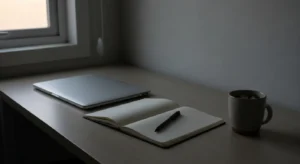
Frequently Asked Questions About Building a Reading Habit
As you begin your journey, questions and specific challenges will naturally arise. This is a normal part of the process. Here are answers to some of the most common questions people have when learning how to build a reading habit. Our goal is to provide clear, realistic guidance to help you navigate these hurdles.
How long does it really take to build a daily reading habit?
You may have heard the popular myth that it takes 21 days to form a habit. More recent research suggests the average is closer to 66 days, but even this can be misleading. The truth is, there is no magic number. The time it takes for a habit to become automatic depends on the person, the complexity of the habit, and the consistency of the practice. Instead of focusing on a finish line, concentrate on the process. Focus on not missing twice. Focus on making it a little easier and more obvious each day. The habit is built not by counting the days, but by making the days count. It will feel automatic when you no longer have to think about it—when it’s just part of who you are and what you do.
How do I maintain my reading habit when I travel or my routine is disrupted?
Disruptions like travel, holidays, or illness are the ultimate test of a habit. This is where your minimum viable action (MVA) becomes your most powerful tool. The goal during a period of disruption is not to make progress, but simply to maintain the habit’s thread. Don’t try to read for 30 minutes in a busy hotel room. Just stick to your MVA. Read one paragraph on your phone’s Kindle app while waiting in an airport line. Read one page of a magazine before bed. The point is to keep the identity of “a reader” alive. By performing this tiny version of your habit, you send a signal to your brain that this is still who you are, even when your environment is different. It makes it infinitely easier to pick up the full habit again when your normal routine resumes.
I’ve hit a plateau and feel bored with reading. What should I do?
It’s completely normal for motivation to ebb and flow. If you feel stuck in a rut, it might be time to introduce some novelty. A plateau is often a signal to change one of the variables. First, consider the content. Are you bored with the book? Give yourself permission to stop reading it. Life is too short for books you don’t enjoy. Try a completely different genre, switch from fiction to non-fiction, or pick up a collection of short stories. Second, consider the format. If you always read physical books, try an e-reader or an audiobook for a change. Listening to a book during your commute is still a valid form of reading. Third, change your environment. If you always read in bed, try reading in a park or a coffee shop. Sometimes a simple change of scenery is all it takes to reignite your interest.
Can I build a reading habit and another new habit at the same time?
While it’s tempting to overhaul your life all at once, it’s generally much more effective to focus on building one new habit at a time. Every new habit requires cognitive resources—decision-making, self-control, and planning. Trying to build multiple habits simultaneously splits your focus and depletes your willpower more quickly, increasing the chances that you’ll abandon all of them. It’s better to pour all your energy into making your daily reading habit truly automatic. Once reading feels like a non-negotiable part of your day, you can then apply the same principles to building your next habit. Think of it as building a foundation one strong brick at a time.




